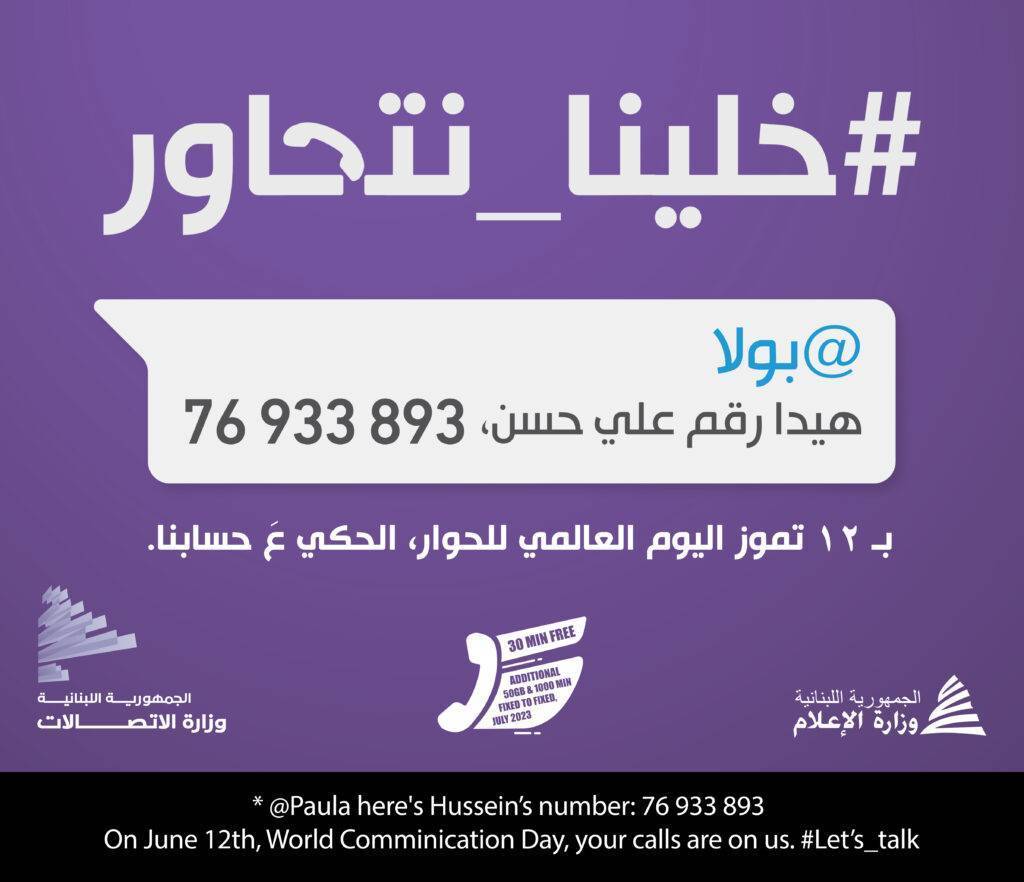
A Call for Dialogue
The Lebanese Ministry of Telecommunications
TBWA\RAAD
The Challenge
Lebanon faced a substantial political deadlock due to the absence of an elected president. This was primarily caused by the ongoing lack of communication among politicians, exacerbating the nation’s socio-economic crisis.
Cultural norms perpetuate a climate where hostility often overshadows dialogue among politicians. Recognizing that the lack of communication was often attributed to trivial excuses—such as not having each other’s contact details—the Lebanese Ministry of Telecommunications aimed to address this communication breakdown.
The Solution
The ‘A Call for Dialogue’ campaign was a targeted effort to break through the political deadlock by encouraging politicians to engage in meaningful conversation.
Because the common excuse was that politicians lacked each other’s contact information, TBWA\RAAD crafted a daring intervention using media as a tool. By strategically placing billboards and leveraging digital platforms to publicly display politicians’ phone numbers, they challenged any avoidance of communication.
This approach not only held politicians accountable but also rallied public support and awareness around the urgent need for dialogue. Collaborating with the politically neutral Minister of Telecommunications, they identified and targeted key politicians known for communication avoidance, making their contact information highly visible in their own communities.
Designed to resonate with Lebanon’s cultural and political context, the campaign transformed frustration into advocacy and catalyzed positive change amidst a backdrop of political inertia and societal yearning for change.
The Results
Politicians, once uncommunicative, began engaging in dialogue and collaboration, breaking the longstanding political deadlock. The Lebanese public, traditionally passive in political discourse, were galvanized into action. The campaign’s visibility and boldness spurred widespread public support and participation in the political process.
The campaign garnered extensive media attention, with over 5 million in earned media, highlighting its audacity and effectiveness. This not only amplified the campaign’s message but also put additional pressure on politicians to respond.